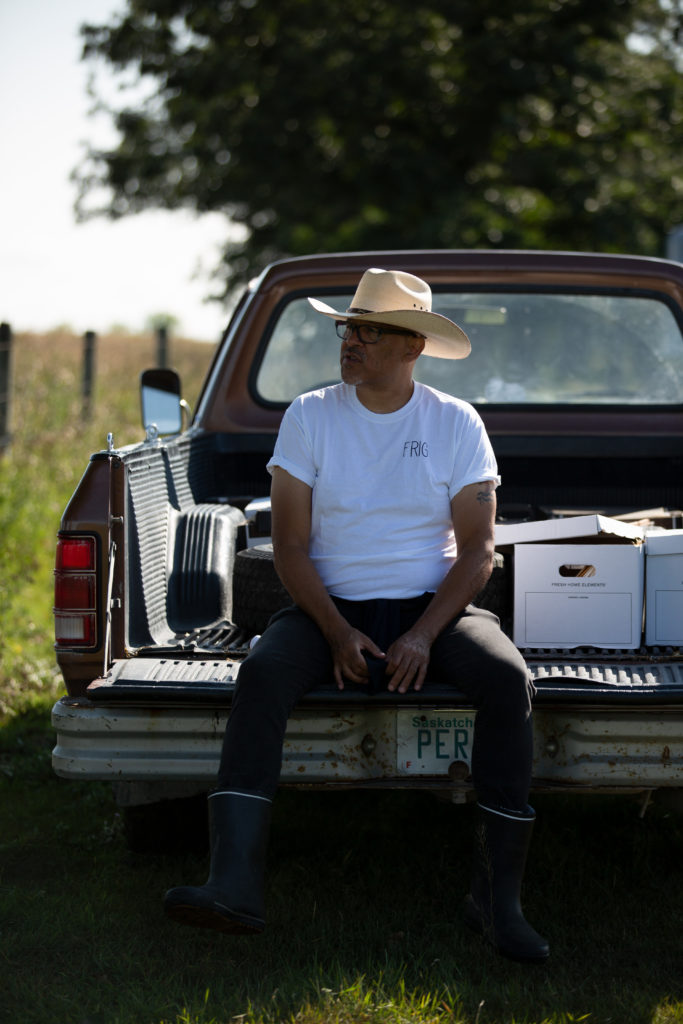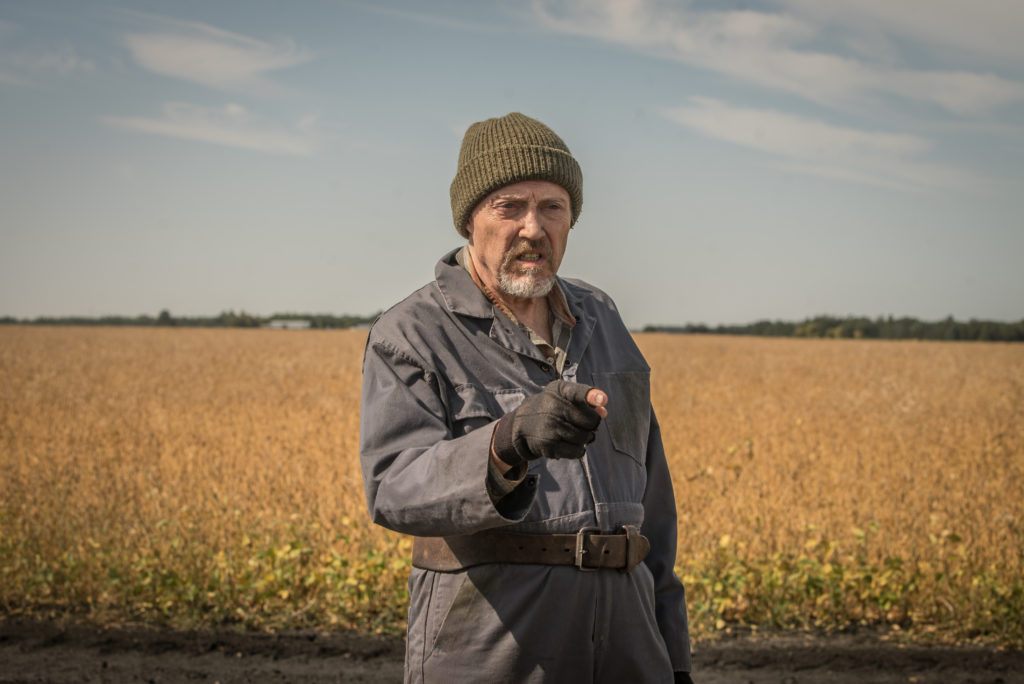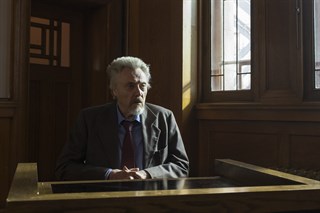Christopher Walken plays the real-life Canadian canola farmer who takes on the agrochemical giant Monsanto in Percy. It’s a slow burn corporate thriller, based on a 1998 lawsuit filed against Percy Schmeiser, a David and Goliath story, pitting a 70-year-old farmer against the multinational. Monsanto sued when they secretly accessed his crops, took samples, and found traces of their own seed’s genetic code. Clark Johnson, one of the hardest working filmmakers an actor and directors in Canada and the US, helms Percy. Johnson gravitates towards serious stories and as he told What She Said’ Anne Brodie and does so for good reason. Johnson started things off:
Percy is coming out on laptops, but I can’t wait for the day we can spill our popcorn on each other and laugh and cry together. Also, I can’t go to my home in Canada, I’m here in New York.
Percy on laptops is better than not seeing Percy!
This is the new reality. My daughter’s working from home in NY but eventually, people want social interaction. I have a flip phone, that’s how old school I am, but people are going to want to get back to the shared experience. I’m proud of the film; it toured the festivals and Chris Walken’s in it – this is the third time I’ve worked with him. He learned to drive that combine, it’s not too hard if you keep your lines straight and pick up the grain.

It’s imperative that films like Percy are made so we don’t forget the actions of Monsanto against farmers around the world. There is so much rage against corporations today.
It started for me when Mitt Romney was caught on camera sayings “corporations are people too”.
You’re attracted to stories with real meat on them, politics, espionage, the law, policing.
I try to be, that’s way more interesting. My parents were activists and I am always trying to find these stories.

I so appreciate the way your direct. Its mature and tells the story without distraction and unnecessary flourishes and builds well.
Visually it told itself. We didn’t have to explain anything. What I did learn was the farming season. I had to send Luc Montpellier, my DP out to the location in a hurry. I got a call saying the canola’s blooming and it wouldn’t be around next week. It will be brown and dirty. Farming was a learning curve. The winter scenes were shot by the second unit on September 27th because it is the prairies and there was a blizzard! And after that it was warm and mild. We had to shoot like that, but the landscapes were beautiful, and we were able to show all the seasons.
You’re telling a story that is known, did that present challenges?
Our writers Garfield Miller and Hilary Pryor had to stick to the court transcriptions. We didn’t want any litigation with Monsanto. We were going to dig into the Schmeiser’s story and the monumental things that happened. The family was six generations on that farm. We didn’t change a thing in the house. He went into his desk and pulled out that cancelled cheque that he didn’t have to pay when he won. It resonates with people. The sequences in India show the same thing happened there.

Why this particular story? Is it an anti-corporation protest?
I was afraid you were going to ask that. I do happy stuff, action, my career is all over the map, but I like a story that focuses on regular people, the little guy versus the big ones. It appealed to me, the real people, farmers like the Schmeisers. Monsanto is still here but hiding under Bayer. My personal beef is that they don’t let people grow organically. The Schmeisers were seed savers, keeping the strongest plant seeds from year to year. They make an argument, sometimes it’s good to augment the seeds, but when farmers save the seeds, the canola is organic. They don’t change them on a molecular level.
Another thing that comes through is that we are not in charge of nature.
We are not in charge but when we were with the Mathesons they said they had to get this crop up today because it’ll rain and you can’t let your harvest get moudly, So we followed them and filmed them in their rhythm.